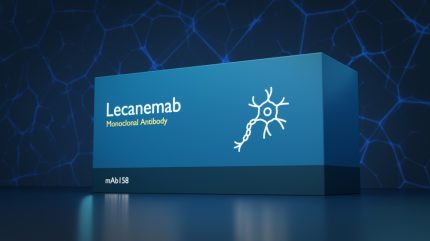
Eisai has announced that patients undergoing continuous treatment with its anti-amyloid therapy Leqembi (lecanemab) for three years have shown a slowing of Alzheimer’s disease progression.
The data was shared at the 2024 Alzheimer’s Association International Conference (AAIC), being held 28 July – 1 August in Philadelphia, Pennsylvania.

Discover B2B Marketing That Performs
Combine business intelligence and editorial excellence to reach engaged professionals across 36 leading media platforms.
Based on data from the open label extension portion of the pivotal Phase III CLARITY AD study (NCT03887455), Leqembi reduced cognitive decline on the Clinical Dementia Rating scale Sum of Boxes (CDR-SB) by 0.95 points compared to the expected decline as seen in the Alzheimer’s Disease Neuroimaging Initiative (ADNI) study (3.09 vs 4.04). ADNI is a longitudinal, multi-center, observational study designed to collect data on the progression of Alzheimer’s disease.
Additionally, 63% of patients showed improvement or no decline and 61% of patients showed improvement on the 14-item Alzheimer’s Disease Assessment Scale – Cognitive subscale (ADAS-Cog14).
The increased slowing of cognitive decline was also highlighted at the AD/PD 2024 International Conference on Alzheimer’s and Parkinson’s Diseases held in March. According to GlobalData Healthcare analysts, the data indicated that an earlier initiation of Leqembi treatment correlates to more beneficial outcomes.
As per additional data from the Phase IIb Study 201 trial (NCT01767311) with Leqembi, Eisai reported that in the absence of drug treatment, Alzheimer’s pathogenesis continues to progress after amyloid plaque clearance.

US Tariffs are shifting - will you react or anticipate?
Don’t let policy changes catch you off guard. Stay proactive with real-time data and expert analysis.
By GlobalDataThe exposure response modelling developed by Eisai—describing the relationship between amyloid clearance and the efficacy of Leqembi—has also reinforced the beneficial effect of early and ongoing treatment for patients, said Brian Willis, PhD, senior Director, Head of Pharmacometrics for Neurology Business Group at Eisai, during a data presentation at the conference. Furthermore, the model has demonstrated how monthly dosing of Leqembi provides similar outcomes as continuous biweekly dosing, he added.
No new safety signals were found in the open label extension study, with six-month data indicating that amyloid-related imaging abnormalities (ARIA) events were low and similar to that of the placebo group. Eisai concluded this was not associated with accelerated long-term progression.
However, despite the positive data, earlier this week, the European Medicines Agency (EMA) Committee for Medicinal Products for Human Use (CHMP) declined to approve Leqembi for the treatment of patients with early Alzheimer’s.
Leqembi, a dual-acting monoclonal antibody, which targets and ablates amyloid beta aggregates that are a major driver of Alzheimer’s pathogenesis. The therapy, which is co-developed by Eisai and Biogen, was awarded traditional approval by the US Food and Drug Administration (FDA) in July 2023.
According to GlobalData’s consensus forecasts, Leqembi is expected to generate $6.1bn in 2030. GlobalData is the parent company of Clinical Trials Arena.





